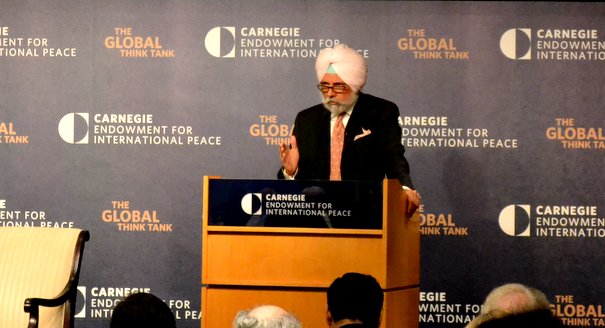Registration
You will receive an email confirming your registration.
As the deadline for a deal on Iran’s nuclear program approaches, the range of possible outcomes will have implications not just for the region and for world powers at the negotiating table, but also much more broadly. Ambassador K.C. Singh discussed how a deal that slows but does not roll back Iran’s nuclear program might affect the behavior of India, Pakistan, Israel, and the Gulf Cooperation countries. He will also explore possible scenarios in which a post–nuclear deal Iran could emerge as a responsible international player or, alternatively, an emboldened destabilizing actor. Carnegie’s Frederic Grare moderated.
K.C. Singh
Ambassador K.C. Singh joined the Indian diplomatic service in 1974. He served in a wide range of posts including ambassador to the United Arab Emirates and ambassador to Iran.
Frederic Grare
Frederic Grare is senior associate and director of Carnegie’s South Asia Program.
